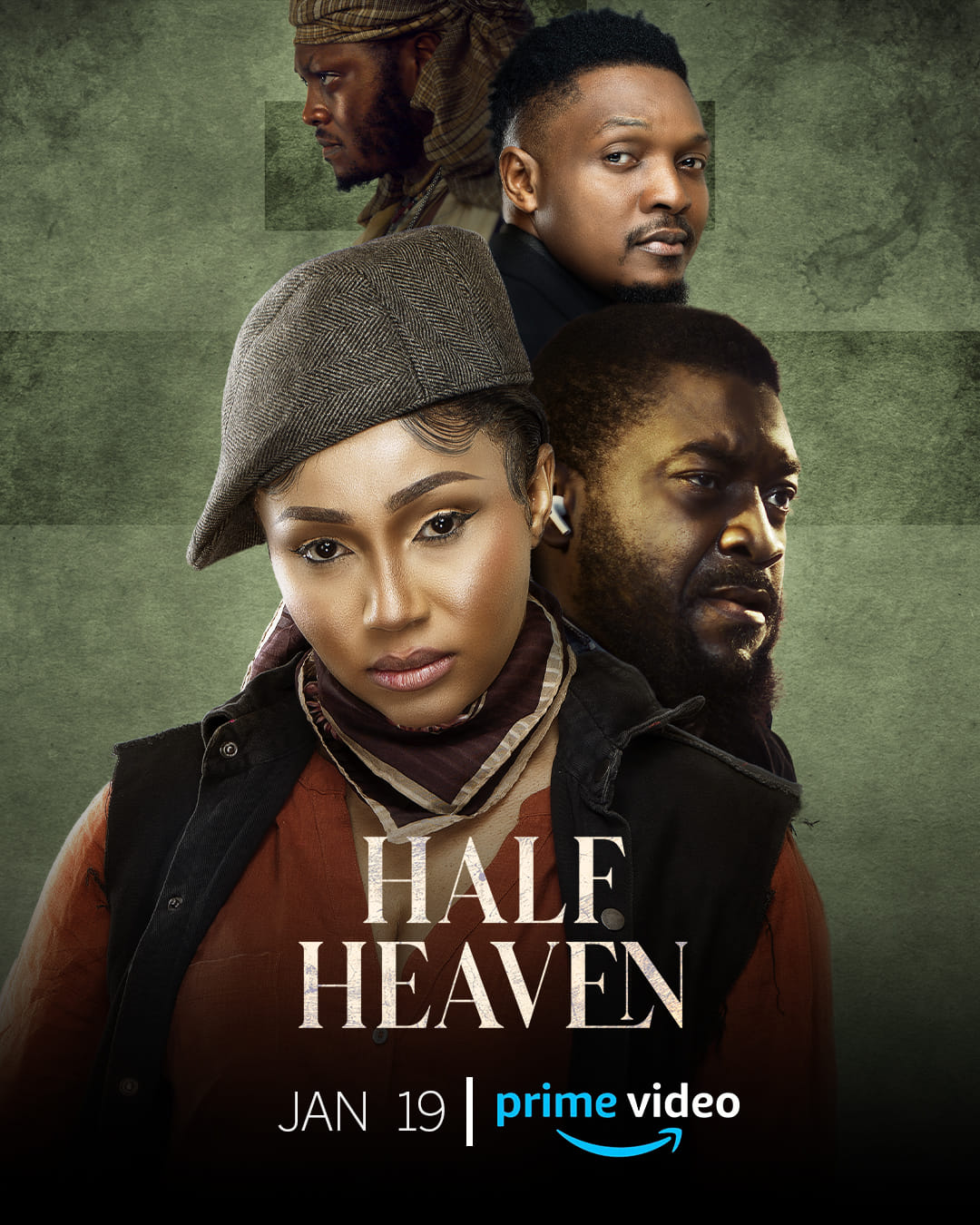| The frank Sone Bayen |
 |
 |
 |
| Monday, 18 May 2009 09:37 |
|
I would have been Bayen's course mate in the University of Buea if I had showed up the year I got admission into the Department of Journalism and Mass Communication. But throughout our stay in UB (Bayen a year ahead), we shared many things as student journalists. Franklin Sone Bayen, needless to say, is a name that cruises across television, radio and the print media. Our first joint attempt at doing professional work was going to be The BUN (Buea University Newsletter) in which we were going to have our stories published ahead of the 1995 UB matriculation. A students' uprising that ensued obstructed what was going to be my (not Bayen's) baptism of fire. I remember the then UB student union president telling us part of the funds students were asking for had to be used in the production of that special edition of The BUN. I felt disappointed. Bayen had however been working for The Post. There was no way he could go for a day without practising journalism, his all-time passion. He would rather miss classes to cover and report a burning story - even the popular political rally at Bangangte that took place at mid semester when lessons were seriously going on. The cover story that almost landed him into trouble with the JMC administration was just one of the bad moments that showed up in his struggle to militate in the art he loves best. Bayen's journalism continued when he moved over to Yaounde to pursue studies at the Advanced school of Mass Communication (ASMAC). Then, I was informed one morning thatmy friend had been co-opted by one of Yaounde's pioneer private radio stations, radio Television Siantou, today Radio Tiemeni Siantou. I don't remember if he or Forcho Rockhill was the first English-speaking broadcaster to be recruited by Siantou. That same day at midday, Bayen's voice was on the RTS airwaves with the summary of the news in the English language. Bayen's stay at Siantou was not long. He was fed up with doing news summaries and so quit. That's what he told me, if I can remember. His resignation letter was a recommendation for me and a certain Babila Fogam, today resident in the U.S. Bayen had advised Remy Ngono, the then station manager of RTS to try Ernest or Babila whom he was certain would deliver the goods. Ngono did not have time to receive me, so I left for Buea. A few weeks later, Bayen came to Buea looking for me. He had found another opening for me at Radio Reine, this time the first private radio station in Yaounde. We affectionately called it The Queen's Radio. Cell phones were scarce, so Bayen missed out on me. Another friend of ours was lucky, was ferried to Yaounde where he joined Bayen on the Radio Reine English desk. Some months later, I joined them. It was not easy to get there (Bayen knows the story) but God had planned I was going to work with the journalism militant. After a year and a half, I quit unceremoniously. To Bayen, who loved my performance, I was just being scared of work. But in reality, my state of health could not withstand the workload. I had suffered a terrible brain fatigue which crippled me for 11 months. Bayen would stop by regularly to find out if I could return and try. "Only come and deliver, we'll do the writing," he would coax me. He love my presentation and compared it to that of CRTV's Tehwi Lambiv. Though I never went back to The Queen's Radio, I will not easily forget Bayen's militancy. One day I was doing the 6.30a.m news when the phone rang. The technician beckoned that Bayen was on the line from Buea. I did not remember him going on a news mission. I however cued him and behold, he reported live from the Mungo Bridge where a separatist movement had planned to hoisted a flag. Bayen was queried by hierarchy when he returned to Yaounde. But he was satisfied to have demonstrated professional conscious - "BE THTERE" One fine afternoon in 2004, Bayen stopped by and told me he was going to the South West region. He did not tell me where exactly he was going to, or what his mission was all about. Upon his return, I learned the Mungo Bridge had collapsed and whatever it took, Bayen had to BE THERE. "It would have been a professional crime if I, Bayen had not gone to see the historic bridge that had given way," he defended himself. At The Herald, Bayen demonstrated the same militancy. I had quit my second job at Radio Environnement this time. He bothered about me staying around without practising our thing - journalism. Several attempts to get me over to The Herald failed. I kept telling him I was could not do print journalism. I had fallen in love with radio disc jockeying and did not believe I could carve out a captivating headline, let alone a interesting article. But the day he was travelling to Israel for a one-month refresher course, he recommended me to The Herald hierarchy. In his absence, The Herald called up. That is how I got into print journalism. Then, after staying away from sports reporting for quite some time, Bayen got me back to it through the latest on the newsstands - THIS IS SPORTS, THIS IS FOOTBALL. How can Ernest Kanjo be so blind about his roots? What has become of the football diaries? Well, I'm back, thanks to Bayen. The story of Bayen and Ernest is long. He is my Godfather in our generation. Zackary Nkwo is in the other generation. I see Bayen everywhere in my professional life. I wish him happy 20th anniversary! The following interview was conducted by the Quail's Eugene N. Nforngwa, one of Cameroon's most brilliant journalists whom Bayen has admired professionally. Eugene is the Editor/Publisher of the one-year-old newspaper, described as a must-read fine piece of work. The chat with Bayen was first published in the Quail ( This e-mail address is being protected from spambots. You need JavaScript enabled to view it ) two weeks ago.
Fired by militancy and inspired by pros
February 27, marked 20 years since his first article was published in a newspaper. Franklin Sone Bayen has been around longer than most journalists of his generation and his record is hard to beat. He has written for nearly every newspaper this country has produced, been on radio and showed up on television. Bayen is one of the country's finest writers. But he may also be one of the country's most controversial journalists: hated by some, misunderstood by others, controversial all the same. "Bayen is unsteady and unpredictable. He is here today and before you know it, he is gone," commented one former colleague. In this first of a two part interview, we revisit Bayen's first steps into journalism.
Interview by Eugene N. Nforngwa
Eugene N. Nforngwa (ENN): Franklin, did you say 20 years in journalism?
Franklin Sone Bayen (FSB): You can simply call it 20 years in the media. Twenty years since I had my first article printed in a newspaper. And in which newspaper? Cameroon Tribune in its booming years in the late 1980s. That was on Friday, February 27, 1989. I always proudly say the only veritable national newspaper at the time found space to print the article of a secondary school boy in GHS Limbe. And to tell you the truth, that article was published entirely as I had written it. About the only change the editor inputted was the title. My title was "A Fire is Burning". The editor used my closing sentence to cut a new title: "Let the Fire Keep Burning". Reading the article today, there are phrases I'd write more neatly now, but I was just a schoolboy then and it could already be that good. I was saluting a revival of the Indomitable Lions after a series of lacklustre performances. Incidentally, that match in Libreville, was the first time an Anglophone, Stephen Tataw, was captain of the national team. I wrote a couple more articles on politics, not counting regular letters to the editor, before the wind of change blew Cameroon Tribune out of relevance for a while. Where did these initial steps take you over the past 20 years? After mere contributions to newspapers (Cameroon Post and The Herald), I worked for Cameroon Post, missed pioneering The Post by one or two editions because I was out of town, moved to Yaounde and worked for Radio Siantou and Radio Reine, joined the editorial team of The Herald and then took up the task of building a new editorial team for New TV. I've also worked or am currently working or collaborating with international media like RFI, radio Vatican, the German News Agency (Deutsche Presse Agentur), the South African Broadcasting Corporation (SABC) and VOA where I did a stint at the headquarters in Washington DC in 2006 after working at the Seattle Post-Intelligencer as an Alfred Friendly Fellow. I've also contributed to the Jerusalem Post. I was'also editor of Weekly Post, an editorial consultant with The Guardian Post and have been collaborating with the Quail.
ENN: You started writing as a schoolboy. What attracted you to journalism?
FSB: It was perhaps the soldier attitude of journalists working under difficult conditions just to bring out the story for public consumption that might have attracted me the most. But, I think it all came from home. My dad bought Newsweek and Time magazines. My elder brothers discussed international politics, American politics, British politics, Arab-Israeli politics, African politics. I was thus exposed early to good journalism. Also, right at the corner from home in Clerks Quarters, Down Beach in Victoria, was the office of Cameroon Outlook, where I saw the famous Ako-Aya (Tataw Obenson) going about his newspaper business, before he died in 1979. Cameroon Times was just across the road from my nursery school near the Community Field in Victoria. In fact, I grew up bypassing journalists along Nambeke Street, which in the 1970s and 80s, was called Cameroon's Fleet Street (like in London) for the number of newspapers that sprouted, crumbled and resurfaced there. Charlie Ndi Chia, Chief Bisong Etahoben, Paddy Mbawa, Paul Nkemayang, the late Emmanuel Mbaku were journalism stars in the neighbourhood. Nkemayang's The Star newspaper is the only survivor there now, holding the forte for that piece of our history. However, my first brush with journalism was during an open air live broadcast by Radio Buea in Limbe. Peterson Yuh was station manager. Mary Camara was the prime mover at the show. Bernard Eko, then in his debut, reported for the 3pm news "live from the banks of the River Limbe". I'm quoting his signoff that day. The news was read from Yaounde by Johnny MacViban, the golden voice on the news at the time. I remember the audience applauding portions of the news because of the way he articulated. Part of the show that day was a news casting competition. I was in form three. My challengers were all adults, yet I won the second prize. However, it is my outing in Cameroon Tribune and subsequent articles in Cameroon Post and The Herald that I consider my real feel of the profession before I read journalism at the University of Buea. Even that was after I had resisted calls by the friend of my mentor, Barrister Tanjong Ashuntantang, to go read journalism in Nigeria just after O' level. With JAMB that was possible. That friend, a Cameroonian reading journalism in Nigeria, was doing his internship with Cameroon Tribune. He had come to Limbe to interview then Mayor Daniel Matute. He might have spotted the journalism gem in me or maybe my mentor told him, but he repeatedly urged Ashuntantang to have me send my documents to him in Nigeria. He would do the rest and have me enrolled. I considered other things and stayed in high school. That goodwill person, a certain Kange Williams Wassaloko, was later to be my classmate in UB. I never reminded him. This testimony is certainly a surprise to him. I must add that when I wasn't contributing articles to Cameroon Tribune, I was typing my "home newspaper" on typewriters bought for my sisters. Journalism was simply bursting out of me, all ways. Journalism chose me. I didn't choose it.
ENN: Big dreams for journalism, admiring so many people in Radio Cameroon, CRTV. Your ambitions did not target CRTV?
FSB: Ask someone else that story. CRTV denied me in a dramatic way in 1999. Well, CRTV might have been the place for broadcasting. Today it is just some place among others, perhaps less attractive than before. That doesn't mean I never desired a CRTV job. Who knows, I may still do. My chance came in November 1999 during the recruitment for Mount Cameroon FM in Buea. The test was done in two phases. I was third in the written test out of over a thousand candidates. It emerged that I was behind the first and second by less than a full point. In the auditioning test that followed, I'm told my name was seen at the top of the mark sheet following what looked like a good studio performance. When the results came out, my name was missing. My studio performance must have been awful for me to have dropped from so high up the list to nowhere. Those who know me can better say if I'm such a bad broadcaster. Saying this may sound like I'm a sore loser, especially seeing the products of that batch: bright, outstanding fellows like George Esunge Fominyen, Akara Ticha, Mabi Azefor (now epouse Fominyen), Esther Kima, Simon Lyonga, Albert Njie Mbonde, Elvis Mbimba, Blaise Testalin Nana. They are about the best guys in CRTV today.
ENN: With such bright seeds, how dare I say I was cheated for them to be recruited, right?
FSB: How dare I imply that I'm better than them? But what about me being just as good as them? Or what about me being better than all of them? Fact is my name disappeared though many good names remained. You often say you are a militant of the media. What does this mean? Militant of journalism you mean. I believe in the profession. For me it's a vocation. A lot of us say so, but it is truer for some than for others. I do journalism to promote journalism because when done well, it is a good cause for the plight of society. We call it a noble profession. I support and defend journalists (genuine ones, of course). Yet I don't spare the rod when it becomes necessary to rebuke offending colleagues as some of them also point out my own weak points. I do so because no one but ourselves can best regulate our work. Anyone else doing so is an oppressor. I can sacrifice my self-esteem and comfort for the good of the profession. And even when I found better opportunities, I've remained a journalist. You know that. I won't do anything to endanger a media organ even if it hasn't been kind to me, even if for others, its downfall would be their consolation. You know the scourge earth policy. You need to hear this story: not long after I obtained my newspaper licence in 1999, a group of colleagues approached me, fuming with disenchantment after a meeting. Their "common initiative group" newspaper was being confiscated by one of them. They had to do something about it. Their solution was to crumble the "CIG" paper by quitting en mass to start a new one. They had to take quick action. You know coups plots often have to be executed summarily, lest they leak. So they needed a ready-for-use newspaper licence to hit the newsstands within the next 24 hours, which none of them had at the time. They wanted me to bring mine to the battle. I understood their cause, but I weighed the odds. I saw the existence of a thriving newspaper on the line. There were not many at the time and, I thought to myself, we shouldn't kill one without being sure another would survive? I put journalism first, and begged the "guerrilla group" to spare me the trouble. I'm proud to have allowed that newspaper to live on to this day, although staff and partner complaints persist. And to add: you and Clovis and I are working on a project that could revolutionise our media landscape. It's militancy for journalism that drives me into this project. I think it is that same militancy that fires you and Clovis on. I think you guys are also militants of journalism. Aren't you?
ENN: Well, granted. So your schoolboy article was published in February 1989, why are you coming out only now with news of your anniversary?
FSB: Find out why! Hahahah! Well, on a serious note, I wanted to do a memoir on my first 20 years around the media. A publishing house in Europe already admitted my proposal mid-last year and wanted to see my draft. But I became reluctant. I haven't even had a satisfactory chance to bring out my full potentials. And there's 30 to celebrate, God willing. I began changing my mind from talking about myself. I'd rather do a book addressing professional and social problems. So I stayed quiet, discussing it only in private until you made me say it here in public, for which I thank you all the same.
ENN: 20 years after, are you already thinking of retirement or moving on to something else?
FSB: Go on retirement before I'm 40, Eugene? Even the nouveau riche in north America go on early retirement only after 40. I'm not yet 40. I don't yet know riches. I'm still toiling and I'm still a militant of journalism.
|
| Last Updated on Monday, 18 May 2009 17:45 |
TTS INTERVIEWS
LIFE ON NELISLIFE (Interview on Apex 1 R…
While corporate communicators focus on strategic messages to win and consolidate clients, Youtubers are much more social in their approach. These ones engage citizens in practical tips in every area... Read more
TTS Be the first to comment! 16 May 2020 Hits:3787 INTERVIEWS
Germany: Immigrant kids trace future
From an initial standpoint, it may seem as if the situation of immigrant kids vis-à-vis education and career choice is the same as natural citizens of these host countries (western... Read more
Ernest Kanjo Be the first to comment! 30 Jun 2015 Hits:61413 INTERVIEWS
Call her Leonette ! A new star is born
Ernest Kanjo (USA) - Even in the ecstasy of a hot bowl of fufu corn and khati khati (a traditional delicacy of the people of Kom in the North West... Read more
Ernest Kanjo Be the first to comment! 28 Jun 2015 Hits:123737 INTERVIEWS
Princess Bridget : Debut Album Released!
Experience is the best teacher, so goes the saying and if Princess Bridget is proud of her first music album it is because she actually gained stage and... Read more
Titus Banyoh Be the first to comment! 15 Jun 2015 Hits:12457 INTERVIEWS
Producers, directors are to blame for a…
It would not be out of place to venture that Kesha Kena Emmanuel pulls the biggest weight within his country’s film movement, at least, as far as administration is... Read more
Ernest Kanjo Be the first to comment! 14 Apr 2015 Hits:11816 INTERVIEWS
THE MISSY BK FOUNDATION REWARDED “We’r…
Being awarded is not a new thing to Missy BK. Her irresistible music has fetched her some prizes. But a recognition for something that does not have a direct... Read more
Ernest Kanjo Be the first to comment! 18 Mar 2015 Hits:10791 INTERVIEWS
Giant leap: Merlisa Determined becomes …
Cloned with inert passion for movie acting, Merlisa Determined has unstoppably been determined to contribute enormously in putting a much-needed smile on the faces of less privileged girls and... Read more
Ernest Kanjo Be the first to comment! 02 Oct 2014 Hits:34433 INTERVIEWS
“I always had this propensity to dress …
Increasing, young Cameroonians in the diaspora are not just putting their God-given artistic skills into action, but are making a livelihood from the art they know best. Particularly, there has... Read more
Ernest Kanjo Be the first to comment! 09 Dec 2013 Hits:28134 INTERVIEWS
“The diaspora need not be sidelined in r…
Before the new movement which has accentuated the progress in the Cameroonian film sector, sporadic, but frantic moves to position the industry were made in the diaspora. Even when such... Read more
Ernest Kanjo Be the first to comment! 30 Mar 2013 Hits:13244 INTERVIEWS
“My movie career began from a shop” - …
39-year-old Atem Ebako Tahirih is one of those who bear Cameroon’s movie flag in the diaspora. For one thing, she flies the flag really high. Her solid movie background places... Read more
Titus Banyoh Be the first to comment! 08 Mar 2013 Hits:23215 INTERVIEWS
“Votary premiere will be a new lesson fo…
Shot and produced in 2012, Votary, the much-talked about Cameroonian movie is set to meet its audience. The premiere for the movie is slated for March 2, 2013 at Eta... Read more
Ernest Kanjo Be the first to comment! 20 Feb 2013 Hits:13012 INTERVIEWS
“I’m more concerned about helping human…
It’s so easy to think that 23 is a tender age to make things happen, especially in an area as delicate, technically challenging and financially heavy as film production. It... Read more
TTS Be the first to comment! 16 Jan 2013 Hits:29525 INTERVIEWS
“Entertainment and entrepreneurship are …
Trade Fair Show is one thing its creator holds so tight at heart. This is apparently because Emile Tah invested her intellect and mind into. And that it has... Read more
Anang Christy Ijang Be the first to comment! 14 Jan 2013 Hits:11210 INTERVIEWS
“I think the jury liked my performance”-…
Dust is yet to settle on the maiden edition of the Cam Movies Merit Awards (CMMA), held in Buea recently. If there is one thing that gave the event... Read more
Asonganyi Carista N. Be the first to comment! 27 Nov 2012 Hits:12239 INTERVIEWS
“My performance has impressed directors”…
1.65m-tall Addy Ngonde sings, dances, writes and even perform a good number of sporting disciplines, but acting seems to nourish her heart with pleasure most. For one thing, she masters... Read more
Titus Banyoh Be the first to comment! 15 Nov 2012 Hits:17668 INTERVIEWS
“When I hear God spe…
Composing songs is not a big deal to Gipraise. God takes care of that for the up-and-coming gospel artiste. Each time He speaks to him, the Almighty has given Gideon…
USA: Cameroonian cou…
Hitherto described as embryonic, the Cameroonian film industry seems to be multiplying paces in a bid to embrace maturity. From every indication, it will sooner than later bid bye to…
“I was born in music…
Based in her native Cameroon, 21- year- old Tiana Gasha shows signs of turning into one of the country’s leading singers, at least in the Afro Acoustic genre, in the…
CAM MOVIES FOUNDER …
If there is one thing that is certain, it is the fact that the film industry in Cameroon is alive. Described by observers as embryonic, the industry grows from…
“The underprivileged…
She is more familiar with Jee! “That’s the name my friends call me,” Enang Juliette told us recently. The young female Cameroon now breathes some air of nobility after being…
"We're out to show t…
For one thing, Lovelyn Afong has a big. She would dare and refuse to chill, even when she is confronted by hazardous challenges. One of the things daring initiatives she…
“I believe in elegan…
If that was the first time she was doing it, then 24-year-old Belagie Ayuk shall never afford to forget her 13th birthday. “It was such a special day in…
MULTI-TALENTED TRIN…
It’s common knowledge that Cameroon is experiencing an exciting evolution in its entertainment industry. Within the last couple of years, a generation of extra-ordinarily talented young artists has been the…
We’ve stood the test…
1.74m-tall Oben Slow knows other languages but he speaks filmmaking best. That’s perhaps the reason why he associates with Agbor Steve Ebai (Big Steve), Rich Manga and Chrono Entertainment,…

LATEST COMMENTS
 Well, I think the CEA was a very shallow and misgu... More...
Well, I think the CEA was a very shallow and misgu... More... This is creativity we are talking about, this are ... More...
This is creativity we are talking about, this are ... More... Lovelyn,your pre-selection criterias are ok but i'... More...
Lovelyn,your pre-selection criterias are ok but i'... More... camhood 4 the better More...
camhood 4 the better More... fame is gd More...
fame is gd More... CONGRATULATION. THANK GOD FOR YOU GUYS. CAMEROON S... More...
CONGRATULATION. THANK GOD FOR YOU GUYS. CAMEROON S... More... cool girls dat was great but this year we the cons... More...
cool girls dat was great but this year we the cons... More...
RECENT Articles
- Learn the Energetic Benskin Dance in Just One Minute
- Eyum Anneh's "Erome Mohwa" Explores Rich Manyu Culture
- MOVIES: COLUMBUS BRACES FOR “WHEN LOVE HAPPENS” PREMIERE
- JZyNo Takes Over Buckeye State with Explosive EP Debut
- COLUMBUS: TATA KINGE PROMISES ROUSING CONCERT
- EYOL’A COLUMBUS PRESIDENT, SG, TALK ABOUT GROUP’S OFFICIAL OUTING
- MUSIC: HAITIAN A-LIST SINGER BRACES TO HOLD COLUMBUS SPELLBOUND
- GOSPEL: MORE FOLLOWERS FOR QUINCY BELL’S “FOLLOW YOU DE GO” SINGLE
- MOLA MONGOMBE TO VIBRATE COLUMBUS
- MUSIC: Ko-C TO THRILL COLUMBUS
- HALF HEAVEN in Cameroonian theatres soon
- HALF HEAVEN GOES TO CINEMAS
- CINEMATIC SUCCESS! REVIEWING Korto Davis’ EVIL LIVES HERE
- WOMEN: FINDING THE PATH
- CAMEROON: AS URBAN MUSIC GROWS…
- Rainbow
- Under the moon light
- BLESSED WITH MULTIPLE SKILLS
- COUNTDOWN: HALF HEAVEN BEGINS JOURNEY TO THE SCREENS
- Anita Etta Ministries announces music video release
- GWENDOLINE THE SOLO TOURIST
- WHEN TRAVELING BECOMES A HOBBY
- MADE IN AFRICA
- Apex Snapshot: SHOW OPENER BLACK IMMIGRANTS & AMERICA
- BLACK IMMIGRANTS & AMERICA
Popular Articles
- Official: CEA gets thrilling trailer
- “Our intense campaign strategy and immense public support played the trick” - Cynthia Tabe, publicist for MTV Awards laureate Stanley Enow
- “Waa Musi has no authority to convoke a GA of CFI” - Otia Vitalis, CFI board chair
- “We’re bent on developing creativity in kids” - Miranda Ejang Tatabod, creative director, MIMS KIDDIES CENTER, Douala
- Retour: C-Boyz release Feel My Pain today
- LIA explains born again status in new Single
- African gospel: New single entrusts health, security crisis in God’s hand
- Bertoua: Orphans gratify Chris Fomunyoh in touching melody
- Stanley Enow, JOVI in-roads: A Look from the other side of the Mungo
- Cameroon bids bye to fallen heroine, hero
- Star wedding: Alexis E celebrates spouse in love masterpiece
- Vanity Fair Vs Vain Fraud
- Neba Lawrence in Cape Town
- Immortalizing Zachary Nkwo: The football commenting paragon I knew
- Bazore Releases New Album















